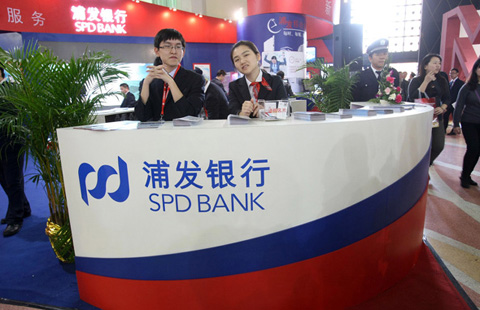Erzhong to leave market in Shanghai voluntarily
By XIE YU (China Daily) Updated: 2015-05-19 08:49Heavy equipment maker may be able to apply for a relisting more easily, say experts
China Erzhong Group Heavy Industries Co Ltd, a State-owned producer of heavy technical equipment, will become the first company to delist voluntarily from the stock market on the Chinese mainland.
The move comes in response to tougher regulations intended to drive loss-making companies out of the equity market.
Erzhong's products include castings and forgings, as well as components for petrochemical factories and nuclear power plants.
Erzhong said in an announcement on Friday that the Shanghai Stock Exchange had approved its delisting request, and the shares will halt trading next Thursday. Shares can still be traded in the National Equities Exchange and Quotations market, an over-the-counter venue for unlisted companies to raise capital.
Erzhong also provided a "protective mechanism" to shareholders who oppose the delisting plan, according to an earlier statement. Such investors can sell their shares to the China National Machinery Industry Corp, known as Sinomach.
The price is set at 2.59 yuan per share (42 cents), a 10.21 percent premium to the closing price before the shares were suspended in late April.
Erzhong's parent company, the China National Erzhong Group, was folded into Sinomach in 2013 in a bailout attempt.
"By voluntarily delisting, Erzhong will be able to apply for a relisting more easily" than companies that are forced to delist, said Liu Xiaosan, a lawyer with Guangdong Bestfound Law Firm.
Erzhong listed on the Shanghai exchange in 2010. The offering was almost 200 times oversubscribed, with a price-earnings ratio of 40.5 times. However, the company began to post losses just a year later.
The loss expanded to 7.8 billion yuan in 2014 from 2.9 billion yuan in 2012.
Analysts said the company has been hurt by strategic errors, but it still has competitive strength in core technologies. Some said it was very likely to return to profit in the coming year and make a comeback to the A-share market.
The China Securities Regulatory Commission issued new delisting regulations last October that give preferential treatment to loss-making companies that take the step voluntarily. Companies that are forced to delist are treated more harshly. So far, only 78 companies have been forced to delist, even though the process has been allowed for more than a decade.
- Trainmakers seek delisting from the Shanghai exchange ahead of merger
- 10 Shanghai-listed firms warn of delisting risk
- Draft delisting rules provide more options
- State firm's delisting raises fairness question
- COSCO sails into profit as delisting iceberg looms
- CSRC head urges improved delisting system
- Amid China slowdown, foreign creditors face bankruptcy riddle
- Regulatory net to cover more lenders
- Carriers' latest rate cuts leave callers cold
- Steel firms eye chances in neighboring nations
- 52.2b yuan sale starts bonds plan
- Counterfeit products put Alibaba in the dock
- Inland nuclear projects likely to get fresh impetus
- Overseas markets offer rich rewards to truck firms

















